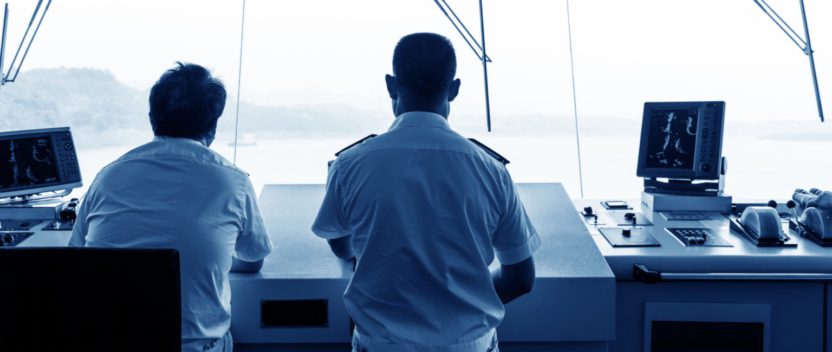New skills, old problems: the crewing crisis in a competency context
The shipping industry has a worsening crewing crisis. But like other crises, it’s one that is bad, but not severe enough to stop ships trading or interrupt world trade.
The degree of the problem is well known. The BIMCO/ISF study estimates the current shortfall to be 16,500 officers, projected to grow to 92,000 by 2020 and to 147,000 by 2025. Other research estimates that the shortfall could be another 42,000 by 2020 and an additional 90,000 by 2025, depending on growth in the global economy.
The second, related factor in this assessment is that the competence standards of existing crew are acknowledged by the P&I community and others to be lower than before, despite a fall in the number of major claims, according to the International Group of P&I Clubs.
The situation this has created, says David Appleton, Professional and Technical Officer for seafarers’ union Nautilus UK, is a higher degree of risk tolerance among shipping companies than might be acceptable in other areas of operation.
The challenges of crew supply and their competence will only increase in future, he told the recent IHS Markit Risk Forum and will have a dramatic effect on expectations of new entrants into industry.
“The issue is that demand is increasing as the attractiveness of the job is falling but seafarers will be less willing to accept the required lifestyle compromises in future. But that does not stop ships sailing. Owners may say skillsets are not as high as they would like but there is an acceptance that standards are falling across the board, with a consequent increase in risks.”
He doesn’t see the rise of autonomous ships providing a solution to the crew shortage. Their adoption will be made on the business case he said, and the financial argument is some way from being made. More likely is an increase in smart or semi-automated ships, which seafarers must be able to understand and operate safely.
“Seafarers will be fewer but their skills and expertise will be very different and at a higher level than today. Considering the time gap between the introduction of new technology and STCW amendments, it is hard to say with confidence whether seafarers will be competent to operate these ships, just because they have a STCW Certificate of Competence. In future it could be almost impossible.”
Because the technology of next generation ships will be so different, so must recruitment criteria, based more on skillsets which fall outside of STCW, with training seen as a holistic process, he said.
An even more concerning scenario was outlined by North of England P&I Club’s Deputy Director, Loss Prevention, Colin Gillespie.
While P&I is primarily concerned with safety, he pointed out that there was a market effect at play too. The crew shortage is adding to owners’ cost pressures because seafarers can argue for better pay – but the bigger issue is the effect on standards.
Training software provider Seagull undertook competence evaluation testing of 242 companies against STCW standard tests, concluding that the average competence of those who replied was about 60%. STCW has no pass mark but Seagull thinks that 75% should be the expected score.
Gillespie argued that the 60% level was not the problem, but rather, what happens at the bottom end of the curve. Without the problem of a supply shortage, crew scoring 30-40% wouldn’t be employed but right now, owners have to be satisfied with crew that simply have a ticket.
Of course STCW like other IMO regulations is designed to deliver a minimum acceptable standard of competence and in that sense, he said, the countries that provide most crew are all around the 60% competence level. Any move to demand a higher standard would potentially worsen the shortage of supply.
“Where would your red line be?” he asked. “Below what level would you not employ – it’s up to the company. But if one seafarer in 12 scores less than 40% in these tests, we have to ask, should they even be in the industry? The trouble is they have a ticket and we need them.”
Demanding higher standards and making it more difficult to get that ticket is a double-edged sword he added. Shipping is not the only employer fishing in a shallow pool of educated people with career choices.
But as Gillespie alluded, certification, while essential for safe operations, should not be where competence starts and ends. What the industry needs, he said was people who are good at adapting to new technologies, who have the necessary attitude, knowledge and experience to run a safe and efficient ship. Get that right and you might achieve a safety culture.
“When we examine claims we look at root cause analysis and the message we consistently get when big events happen is that they happen where we don’t see the right behaviours with systems,” he added. “Our industry is very good at putting systems in place but we are not so good at getting the right behaviours.”
When systems go wrong the industry is prone to putting system fixes in place and not looking at behaviours – often because they lack the skills needed to do this. Encouraging the right behaviours across the industry has to be the next step in seafarer training, he added, but was subject to a reality check.
“It works if you can get the right people in and retain them, but it’s not easy because the supply and demand situation means the power lies with the employee or crew provider. You might only be able to source crew that you would not ordinarily take on, but you have to take what there is, including the ‘less than 40%’ guy.”


